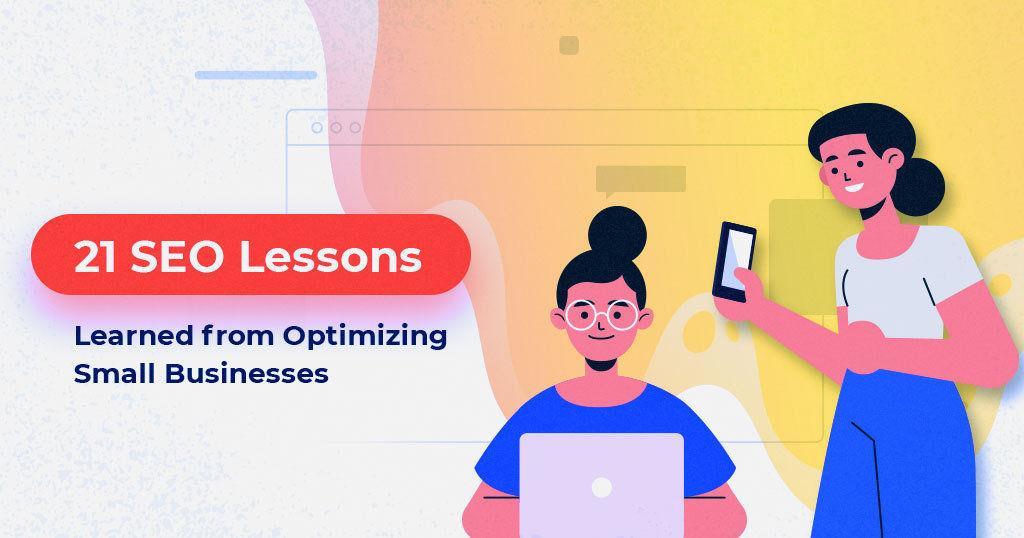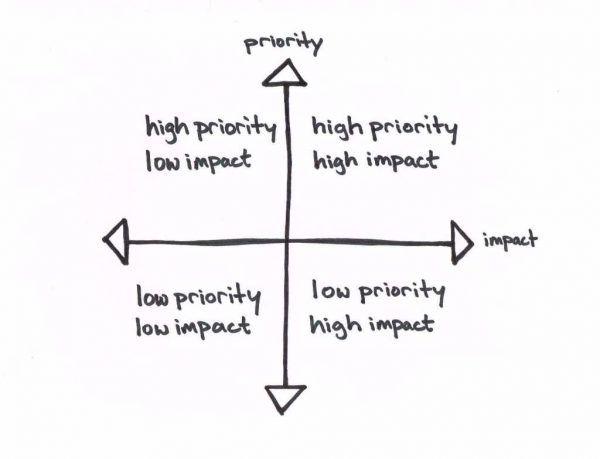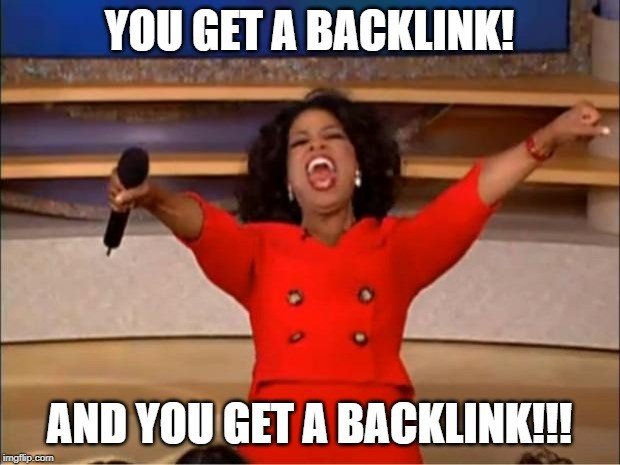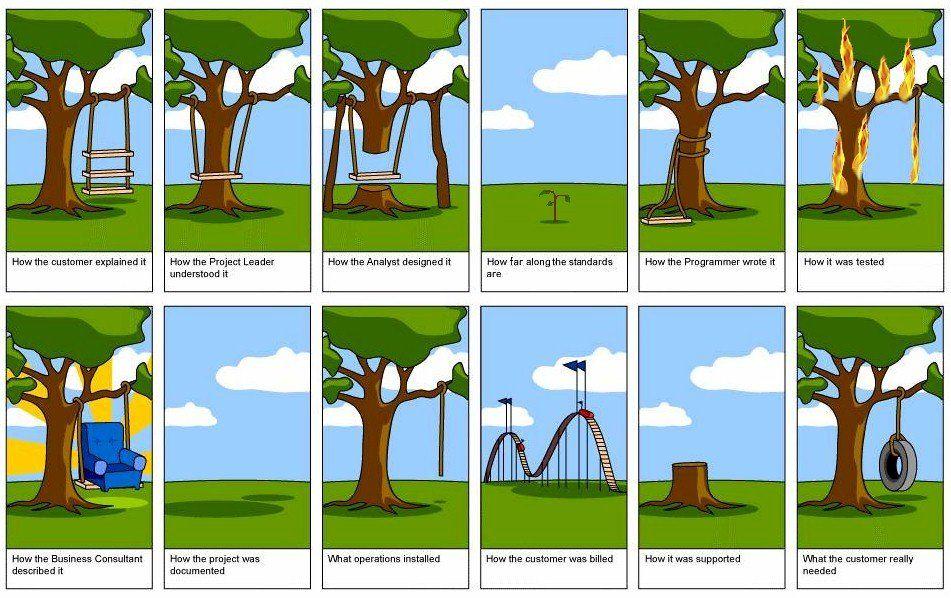Over the past 7 years, I’ve learned a lot about digital marketing and SEO. I started this journey by building WordPress websites, but then quickly realized that they are useless if they do not rank on search engines.
That’s how I actually got into search engine optimization. I got lucky and landed a job for a company in a pretty competitive niche (bodybuilding supplements) pretty fast. Fast forward for about 5 years and now I run my own company. Now I want to take my SEO & Digital Marketing Agency to the next level but, before that, I want to share what I’ve learned during this time.

- SEO Isn’t All That Hard (If You Get It Right)
- SEO Does Take Time
- You Need Quality Outsourcing Personnel
- You Have to Leverage Your Work by Training Owners & Their Employees
- Don’t Rely On Clients Delivering
- Avoid Taking Clients That Don’t Fit You!
- Perfectionism Holds You Back. Don’t Be Afraid to Fail
- Focus on Important Tasks
- It’s Useful to Have a Monthly Schedule & Estimate
- User Intent & UX Really Do Matter
- Tools Are Really Useful & They Save up Time
- Paid SEO Audits Are Better
- Links Are Still Important
- Links Are Indeed Expensive
- Links Can Be Obtained For Free (#naturally)
- The More Money Clients Have, the Less They Stress You Out
- Be Firm About Your Schedule Upfront
- Transparency Matters More Than Quick Results
- Communication Is Key
- Most People Who Want SEO Don’t Have Websites on Popular Platforms
- Programmers Are (Sometimes) Difficult to Work With
1. SEO Isn’t All That Hard (If You Get It Right)
People fear SEO because of its uncertainty. Google isn’t straight-forward at all when it comes to SEO advice. Then, there are the Google Algorithm Updates which we all fear one way or another.
When comparing SEO to PPC, it seems that PPC is the safer bet. Although PPC also has the quality score which is tricky, there’s a lot more confusion that comes with SEO, which makes it harder to approach.
However, from my experience, it seems like SEO isn’t all that hard. At least not when you’re dealing with small/medium sites.
Most of the sites are pretty straight forward, with separate pages for each service. If you get lucky and run over a completely unoptimized website, the keyword research and title creation alone will bring in results.
Things actually become complicated when you’re dealing with the previous work of other SEOs or digital marketing agencies. Spammy backlink profiles, keyword stuffing and other things like that.
Of course, when you’re talking about big eCommerce websites, with hundreds of thousands of pages, things can get a little bit trickier.
But the fundamentals are the same. Make the site crawlable and indexable, have valuable content and optimize for keywords, earn some backlinks and you’re good to go.
2. SEO Does Take Time
Firstly, we have to talk about execution. Are you alone? I was. I had to do pretty much everything and, even if I outsourced content creation, it still took time to validate, edit and publish.
So, it can take a long time, especially if you’re a one man gang. We’ll talk more about this in the next lesson.

However, even if your execution potential is very high, if you’re planning on going the safe route, then it’s probably a better idea not to jump head first and rather test the waters before.
If you take massive action the first months but then stagnate or don’t do anything more later on, you’ll look suspicious. Why would a website be extremely popular for a couple of weeks and then not be popular at all? It sure does seem like someone was trying to manipulate the rankings.
Taking everything a little bit slower will provide the security that what you’re doing is fair and that you’re not trying to push things.
In my opinion, a website’s rankings reflect the level of success a business has. They’re interconnected. For example, if an eCommerce page only has 3 products, why would it be better than a competitor page with 300 products?
How can an owner expect to rank for the main keyword when it doesn’t meet the users’ expectations? A different strategy must be approached, either by optimizing for separate products, or a narrower, less competitive category keyword instead.
That’s something you should communicate to the owner. If he still wants to rank, then you’ll probably have to try some sketchy stuff, which will put his site at risk. Better avoid the stress upfront by not signing a contract.
So, consider this: if you have massive execution potential, expect to keep it up even when the rankings are high, or you might look suspicious and lose them.
Giving a good, realistic estimation of the time required will also build credibility. So far, my estimations with clients were very realistic. And through this, I’ve gained their trust long term. Promises kept, contracts still running.
3. You Need Quality Outsourcing Personnel
If you want to move ahead quicker in an SEO campaign, you’ll need help. Chances are, if you’re just starting out, that you don’t have money to employ people. However, outsourcing and subcontracting is a great alternative.
If you really want to be a search engine optimizer, then focus on having your backups when it comes to web design, servers and coding.
Most clients will often ask you about issues regarding e-mail and server issues, small content or web design changes and implementing new features, such as pop-ups.

So make sure you have at least someone who’s good at editing pages on popular platforms, such as WordPress and knows a little bit of CSS/HTML. It won’t be easy finding a programmer, since most of them already have a high paying job.
You can always take a look at platforms such as codeable.io where you can hire a coder. Be wary though, prices are by the hour and they’re not cheap.
You won’t have to pay for anything. Just charge the client for the work (you can even add a little bit extra, to cover for your taxes at least). But the client might always say “No freaking way am I paying that much to change the background color.”
However, what’s really hard to find from my point of view are good writers. They’re essential for SEO so make sure you start looking for them early on.
There are multiple reasons for that. Price range, quality and client expectations all get in your way. For some businesses, such as coffee shops, quality content might be easy to obtain. But if you’re working with someone selling building materials or medical equipment, average writers might not have the expertise to do it.
Then there’s also the issue of them not having a business of their own, which makes it harder to collaborate with them legally, at least here in Romania. The ones who do have businesses are either agencies with a lot of low quality content, or professionals with extremely high prices.
If your strategy is mostly based on content and you can call yourself a content marketer, then sooner or later you’ll need some writers. It’s better to start looking for them sooner.
Ideally, the client should write the content. They know their niche best. However, we know that’s not always possible. This takes us to the next lesson.
4. You Have to Leverage Your Work by Training Owners & Their Employees
Try to get as much information from the client as possible. They know their niche best. They know the clients’ possible needs and they know their products.
Firstly, try to get them to write the content if they have the time. A corporation owner won’t have time, but a small business owner might get the occasional weekend off and can squeeze 2 hours of high quality content writing.
Even if they don’t do the entire article, once you have your keyword research and content gap analysis done and have chosen a couple of topics, at least get the owners to outline key points which should be covered and provide inspiration sources for the writer.
You should always work with your clients to build an SEO opportunity seeking culture within their company.
Do they have employees who upload products on the site? Make sure they know how to do it from an SEO point of view.
Do they often go to conferences or meetings? Make sure they always seek a backlink opportunity with their acquaintances. What blogger friends do they have that could help with a campaign?
Remember though: make it clear that everything must pass through your approval before it gets implemented. They shouldn’t start any spammy link building and then blame you for bad SEO results.
5. Don’t Rely On Clients Delivering
Although it’s great that your clients accept to help you by providing all the information you have requested, don’t rely on them delivering it, at least not on time.
Make sure they are making progress on their task from time to time, if it’s a bigger one. If you talk on Monday that they will give you the list of employees to add on the site by Friday, call them on Wednesday and remind them that you’ll need the information on Friday.
If possible, set up a meeting and get all your questions ready to be answered right then, right there.
6. Avoid Taking Clients That Don’t Fit You!
Many requests can come from sketchy businesses or websites. Once someone wrote to me:
Client: “Hey, my website was hit by a Google Penalty after the recent Google Update and I can’t figure out why. Can you help me?”
Me: “Sure. What’s the website?
Client: “www.piratedmovies2019.com”
Me: “I think I already have an idea…”
Many other requests I get are for video chat websites, porn sites, loans and other barely legal or sketchy niches. However, the truth is that the niche doesn’t really matter. And it’s not up to me to tell you what your moral boundaries are.
However, I’ll tell you this: Those sketchy niches… are HARD. Not because the competition is good, but because it’s bad. Literally bad. More like EVIL.
Why? Because the earnings are big. And, although you can make good money there as an SEO, prepare for a heck of a ride. Competitors prefer to blow into your candle instead of making their own shine brighter. This means you’ll deal with SPAM, negative SEO attacks, DDoS and whatever other Black Hat SEO stuff you can think of.
But this doesn’t just stop at the type of website or business they’re running.
Are they asking you to create videos for them? If you can’t outsource and profit from it, decline! Do they want graphic design? Do not purchase a Photoshop course! Decline. Outsource. Focus on search engine optimization.
Then there are the people. How’s the client as a person? Too pushy and you don’t like pushy persons? Decline.
I once met a client who was disappointed with his previous SEO providers. I asked him whom he worked with previously and his answer was “everyone”. Kinda’ made me feel the problem was with him and not everyone else so… wanna guess what I did? Yeah… that’s right. I said no.

I once declined optimizing a butcher’s website because I don’t like it when animals get slaughtered. It would’ve made me feel bad so I just refused it, although it probably had a good pay.
Taking a client you don’t really like or don’t feel comfortable with will make you feel less motivated. This might end up in you delivering poor results and you don’t want that to happen. On the long run, you’ll feel better and less stressed and you might even end up making more money.
I know it might be hard, but it’s a good idea to learn to say no. Early.
7. Perfectionism Holds You Back. Don’t Be Afraid to Fail
Unfortunately for me, I’m a perfectionist. Although I’m not speaking from experience (I can’t say I’ve actually failed really bad so far), I can say this: I probably didn’t try hard enough.
Most of my life’s biggest lessons came from mistakes and I wish I could do more of these in my business as well. Now I’m not telling you to be a fool and to not be cautious. Everything is about calculated risk. Just don’t stop at calculating.

Overthinking, over-planning, constant supervision are not good friends and they set you back most of the time. In other words…
8. Focus on Important Tasks
As previously mentioned, clients will always ask you for minor things that will take you time. While changing a background color might take 5 minutes, adding a popup might take hours, depending on the platform.
Make sure you estimate right what you can do quickly and what you can’t do. Don’t spend hours trying to figure out how to implement that particular feature. The feature won’t be useful if the site isn’t ranking.
Focus on those important tasks related to SEO, such as publishing blog posts on schedule, constantly optimizing pages and seeking backlink opportunities.
Otherwise, these less important tasks, although small, stack up and end up taking a lot of time, leaving too little for dealing with the important things.

Source: grasshopperherder.com
9. It’s Useful to Have a Monthly Schedule & Estimate
As much as I don’t like relying on very strict patterns, as I feel they limit creativity, you do need some.
It’s good to have a checklist of SEO best practices you generally do for all clients (for an SEO audit) and it’s also good to develop monthly schedules for each client.
How many blog posts are you going to publish per month? When should you start looking for new topics? When do you launch a new wave of outreaches?
You can also purchase some nofollow backlinks from reputable sites which are relevant to your client’s niche. Avoid using the same sites for all your clients. If it’s a car rental website, look for car news publishers.

This will also help you deliver an estimate at the end of the month to justify your labor. Some clients don’t really care and if you deliver good results they will start ignoring them, but it adds to the transparency and helps you keep track of your progress (it acts like a journal).
10. User Intent & UX Really Do Matter
Once you get to the 1st page, you’ll start noticing that slight changes that align with user intent have a positive impact. Now it’s hard to isolate in order to see if the changes have impacted rankings, but it’s definitely worth taking a look at conversion rate, which will usually improve.

You have to figure out what makes a client buy or take the appropriate action that you want them to take and what makes them leave and never come back. Once you know that, you’ll know exactly what you have to do.
Do they want to see the price? Make the price font bigger. Are they looking for images? Put them first. Answer their questions and they will convert.
Here’s a good video to watch to understand the basics of UX:
A general rule of thumb is that your clickable objects are obvious. You can use tools like Hotjar or Yandex Metrica to figure out if your users are clicking where you don’t want them to click.
A good first step is to take a look at what the top competitors are doing. Don’t copy paste them, but consider that since they’re #1, it means that they’re definitely doing something good.
For me, working on improving the UX brought results in both rankings and sales. Even if Google doesn’t reward the UX changes with rankings early on, you can measure its success by looking at the conversion rate. Higher conversion rates mean more money and more money means more SEO, which eventually ends up in better rankings.
11. Tools Are Really Useful & They Save up Time
Having the luxury of being able to use the CognitiveSEO Tool was essential to my success. It saved me countless hours of work and sorting Excel files by aggregating everything into the platform, from backlinks and technical audits to rank tracking.
SEO tools can really help you speed up the optimization process, so make sure you pick the right ones and use them to leverage your work.
If you’re just starting out and don’t have a budget to spend on tools, you can obviously help yourself with free ones. Here’s a list of free SEO tools that I use in general, along with the CognitiveSEO Toolset.
12. Paid SEO Audits Are Better
When you do an SEO audit, don’t copy paste some info from a free tool. Firstly, the client might test you with that. Secondly, following that path your results might not be impressive.
Wasting too much time on things such as 100% PageSpeed Insights score or keyword density will really hurt you both short and long term. Instead, focus on important things such as indexability, keyword research, UX, content creation, title & meta description optimization and promotion.
A great deal you can make is to offer a free audit if they decide to sign a monthly services contract.
If they say no, they can keep the audit, but it’s going to cost them. This way, it’s not actually a free audit anymore, but it’s like labor included in a monthly contract. You’ll have to audit their site before you start the job anyway, right?
This way you’ll feel more responsible for the work, knowing that it’s actual work and not just a pitch. You also have the audit as an incentive for them to sign a monthly SEO services contract.
As a client, free SEO audits can cost you more than paid ones on the long run. So better get the real deal.
13. Links Are Still Important
There’s not much to say here. I always do technical things first while preparing the keyword research and content gap analysis. Then I immediately start the content optimization process and long term monthly content via the blog.
However, to really push it to the next level, I have to admit that links have definitely showed good results, especially when pushing from the 5th position to the top 3 ones.
So if you have a tough competition, you’ll still need to think of some ways to get sites to link to you, even in 2019.
14. Links Are Indeed Expensive
Obviously, the easiest way to get links is to pay for them.. But god damn, some links are expensive! And when I say expensive I don’t mean just money but also all the problems that paid links can bring (penalties for instance).
I’ve had cases in which certain publications have asked me for a client’s whole month budget just for one link. And I also had to provide the content myself!
The truth is that cheap links are also bad links and they’re usually not worth it, since they come from sketchy websites that don’t provide much quality. I know “bloggers” that write about everything… today they write about one brand and the next day about their competitor, recommending both.
However, I would high recommend that you nofollow those links. Even though you might think that they don’t, the truth is that nofollow links impact SEO. Not as much as the dofollow ones, but they do.
15. Links Can Be Obtained For Free (#naturally)
Yes. You’ve heard me right. It is possible. Even for small websites in uninteresting niches. But links don’t come that easily.
You can’t just publish your post and pray that it will rain backlinks. You have to promote it. Be it through direct e-mail outreach, organically on social networks or through Facebook ads, your chances of landing a backlink will increase.
You need to be persuasive. The truth is this requires both earned skills and some talent. A good way of increasing your success rate is to get under their skin. Don’t outreach directly with what you want, but try to build a relationship before. In general, you have more chances if they also get something in return, so figure out how you can help them first and they will help you back.
I’ve started conversations by asking about soccer, favorite movies or personal stories. Many people share these experiences on social media. Follow them for a while and try to start a conversation. Once they reply the first time, your chances of collaborating are already high.
Also, when you’re starting with e-mail outreach, make sure you’re outreaching to people that might be interested in collaborating with you. If you do your research well, your chances will increase even more.

Some even go one step further by writing posts specifically for the people they’re about to outreach. For example, if you see someone constantly talking about certain aspects of a diet, you could write about it on your nutrition website and then outreach them.
Most of them will at least be happy to share the post on social media and, even if it’s not quite as good as a backlink, it still helps make your post more popular. Who knows, maybe someone else who follows them will see your post and link to it.
You can also try some other methods, such as the mention outreach technique.
16. The More Money Clients Have, the Less They Stress You Out
Don’t get me wrong. People are all different and character is what matters most. I’ve had people that have money and stressed me out a lot.
However, in general, the ones that don’t have the money upfront or always postpone payment for different reasons might also be the most demanding and they can also be the first to call you out if you take a bad step.
Generally, people with money have a better understanding of how things work and they ask more questions about what the final result will be and fewer questions about how you’re going to achieve that.
If your offer isn’t ridiculously high, you’ll have an easier time signing a contract for a decent pay. They are focused on the final result and don’t micro manage you too much.
However, they are also the most fierce if you try to scam them or take them for fools, so make sure you avoid that. They have good lawyers.
17. Be Firm About Your Schedule Upfront
I’ve made the big mistake of always answering the phone and trying to serve the client immediately whenever they needed assistance. However, that put me second and, over time, it affected me both personally and professionally.
Even if you work from home or if you’re an entrepreneur, you need to have a limit on how much you work.
It’s a good idea to tell your clients upfront that you prefer to be contacted via e-mail (or your preferred social network channel) and that your schedule is between xx AM and xx PM.
I know it’s all #GaryVee and stuff and I love him, but don’t overwork yourself or you’ll get too tired to be motivated at all.
If the clients keep calling you all the time, you can consider telling them that the hours spent act as marketing consultation sessions which can be billed.
18. Transparency Matters More Than Quick Results
Many clients that come don’t have any SEO training. Most of them will ask questions about Google’s algorithms that might seem silly. Answer then with calm and honesty.
If you’re dealing with someone who’s had bad previous experiences, being transparent might help even more. If the others have promised them #1 in no-time and haven’t delivered, do you think they will fall for it again?
Instead, tell them that nobody can actually promise you that. If they want to work with you it’s good and if they don’t, it’s also good. You can instead promise them that you’ll do your best.
Here’s a list of questions and answers on how to convince clients to buy your SEO services. They should help you get more deals.
19. Communication Is Key
Sounds like couple therapy, doesn’t it? Well, you and your client are sort of a couple and communication is very important. You have to make it very very clear what you need, what you’re going to do, what they can and can not do. And they should communicate things back to you as well.
Make sure your clients understand that they can’t make any modifications to the website without consulting you first. SEO can be affected by anything, so make sure they know this.
More importantly, make sure they don’t start getting backlinks from sketchy websites. Sure, it’s a very good idea that they always seek backlink opportunities, but this doesn’t mean they should also start any link building without telling you.

When talking about big changes, make sure you have a written consent, either via e-mail, SMS, social media or even paper. It’s best via e-mail as it’s harder to lose.
20. Most People Who Want SEO Don’t Have Websites on Popular Platforms
This might not make you happy, but many people that really need SEO campaigns don’t run on popular content management platforms, such as WordPress, Joomla or Magento.
Those platforms are already pretty SEO friendly and there’s usually a lot of information on the web that covers specific cases related to them.
Prepare to deal with very weird platforms, as well as custom built sites which are either old or simply not SEO friendly.
This might be a case of SEO lesson no. 6 (not an ideal client). However, if you’re just focusing on the SEO part strictly and can guarantee that someone else will implement the changes, then it’s good.
But again, if you don’t want to waste time, just don’t take clients that don’t meet your ideal criteria.
21. Programmers Are (Sometimes) Difficult to Work With
Disclaimer: I’m not trying to insult anyone. Programmers are awesome. If you’re a web developer/programmer, then you should definitely have a good understanding of technical SEO.
This might just be something local, but 2/3 of times I’ve got the impression that they have a can’t do attitude, an excuse or something similar.
A common mistake I see with programmers that build custom websites is using the same titles as URLs, menus and slugs and not having enough flexibility.
So, if I create a page with the title “X lessons I’ve learned from optimizing small/medium businesses” then the URL will be automatically generated as “x-lessons-I-ve-learned-from-optimizing-small-medium-businesses” and that same title will be in the menu of the site, which isn’t quite favorable.
Again, most of these issues don’t come with WordPress and seem basic knowledge to us, but for PHP developers it might be different, they might focus on other things they find more important.
Explaining the importance is essential but you also have to be assertive in your communication. Most of them are always trying to be nice, but you can feel that tension somewhere… Sort of like you’re addressing a criticism on their work, as if it weren’t good enough.
Sometimes though, they might have good arguments, such as “That would probably cause a security issue, are you sure it’s worth it?” to which the answer would be “If you’re certain it causes that much trouble, then probably not”.
If you want to save time, record videos showing exactly what you mean instead of e-mail texting. A video recording of your screen showing where the changes should take place + your voice explaining the process will be more effective.
Prepare for bugs and let them know upfront that it’s not a 1 time deal. In one case there were some redirect issues in which URL parameters with unique identifiers from Facebook would result in a blank page. The programmer fixed it, but then we figured out that Adwords parameters do the same.
Then some other bugs came out and so on. At this rate, both you and the programmer can get annoyed, but keep your calm.
It might sound logical and simple to you, coming from a world where these small issues don’t really exist (WordPress) but to them and their platform it might not be the same. However, some SEO training won’t hurt. They should be interested in learning these things. The truth is that the code can be pretty, but it doesn’t matter if the site doesn’t rank.
It’s a different thing when they understand how SEO works, though. For example, the awesome programming #team here at CognitiveSEO definitely isn’t a difficult one. And believe me… our CEO is a champion at finding bugs.
What SEO lessons have you learned in your journey as a digital or content marketer? Which one was the most important? Please share in the comments section below!
The post 21 SEO & Business Lessons Learned From Optimizing Small Websites appeared first on SEO Blog | cognitiveSEO Blog on SEO Tactics & Strategies.
21 SEO & Business Lessons Learned From Optimizing Small Websites posted first on http://nickpontemarketing.tumblr.com/
No comments:
Post a Comment